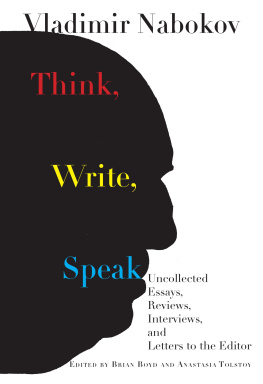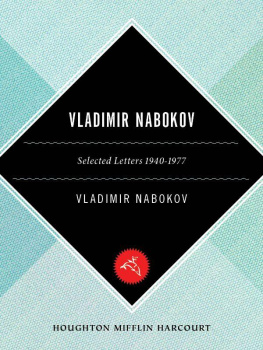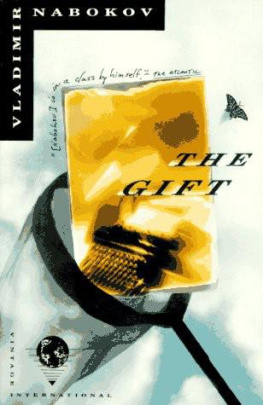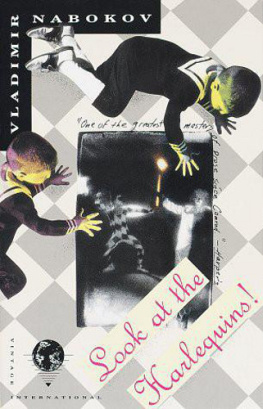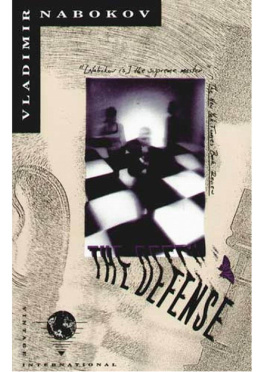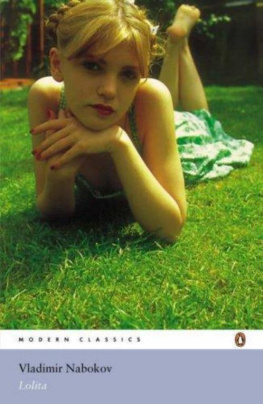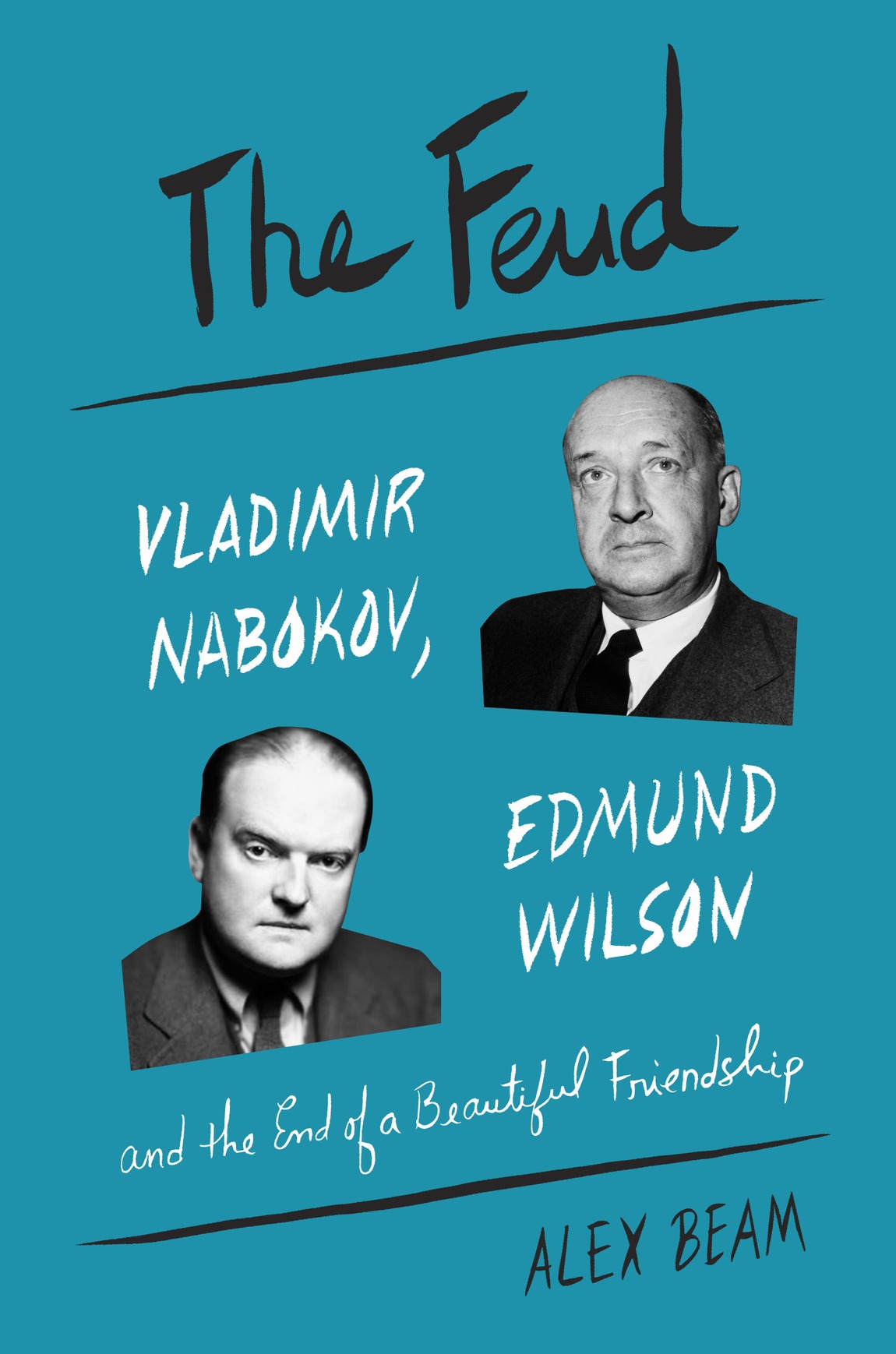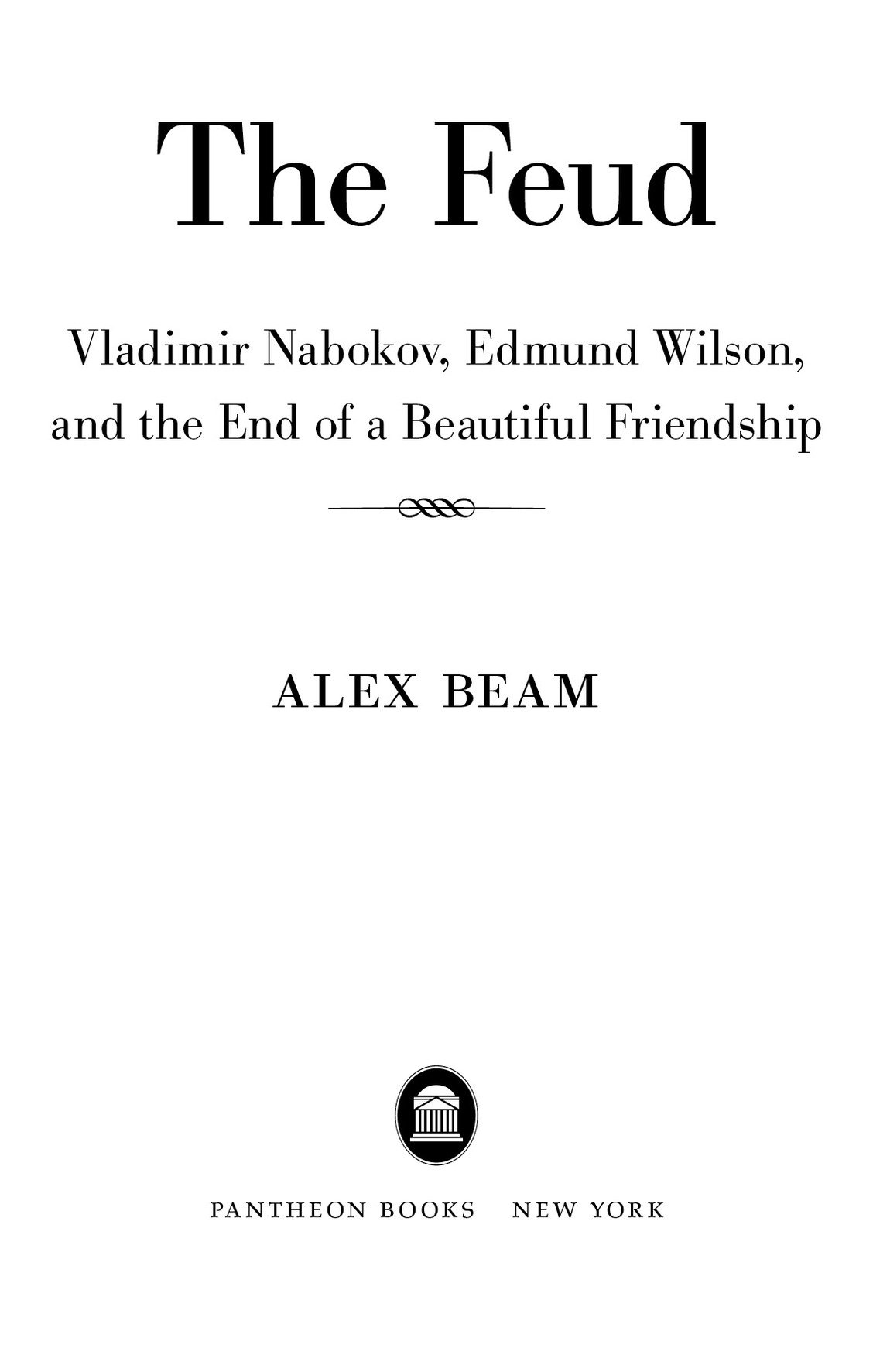ALSO BY ALEX BEAM
American Crucifixion
Gracefully Insane
A Great Idea at the Time
The Russians Are Coming!
Fellow Travelers
Copyright 2016 by Alex Beam
All rights reserved. Published in the United States by Pantheon Books, a division of Penguin Random House LLC, New York, and distributed in Canada by Random House of Canada, a division of Penguin Random House Canada Limited, Toronto.
Pantheon Books and colophon are registered trademarks of Penguin Random House LLC.
Grateful acknowledgment is made to The Overlook Press for permission to reprint excerpts from Eugene Onegin by Alexander Pushkin, translated by Walter Arndt. Translation copyright 1972 by Walter Arndt. Originally published in 1992 by The Overlook Press, New York, NY (www.overlookpress.com). Reprinted by permission of The Overlook Press. All rights reserved.
Library of Congress Cataloging-in-Publication Data
Name: Beam, Alex, author.
Title: The feud : Vladimir Nabokov, Edmund Wilson, and the end of a beautiful friendship / Alex Beam.
Description: New York : Pantheon, 2016. Includes bibliographical references and index.
Identifiers: LCCN 2016019850 (print). LCCN 2016007056 (ebook).
ISBN 9781101870228 (hardback) ISBN 9781101870235 (ebook).
Subjects: LCSH : Nabokov, Vladimir Vladimirovich, 18991977Friends and associates. Nabokov, Vladimir Vladimirovich, 18991977Criticism and interpretation. Wilson, Edmund, 18951972Friends and associates. Wilson, Edmund, 18951972Criticism and interpretation.
BISAC : BIOGRAPHY & AUTOBIOGRAPHY / Literary. HISTORY / Europe / Russia & the Former Soviet Union. HISTORY / Modern / 20th Century.
Classification: LCC PS 3527. A 15 (print). LCC PS 3527. A 15 Z 615 2016 (ebook). DDC 818/.5209dc23.
LC record available at: lccn.loc.gov/2016019850.
Ebook ISBN9781101870235
www.pantheonbooks.com
Cover illustration: Vladimir Nabokov: Gamma-Keystone/Getty Images; Edmund Wilson: Granger, New York City
Cover design by Kelly Blair
v4.1
ep
Contents
To my friend, Michael V. Carlisle
Life has no pleasure higher or nobler than that of friendship. It is painful to consider, that this sublime enjoyment may be impaired or destroyed by innumerable causes, and that there is no human possession of which the duration is less certain.
SAMUEL JOHNSON , The Uncertainty of Friendship, 1758
Introduction
I first learned of the friendship and subsequent feud between Edmund Wilson and Vladimir Nabokov only a few years ago. A friend of mine had been tracking down Alexander Pushkins descendantsthere are a fewand mentioned in passing that Wilson and Nabokov had ended a quarter-century-long friendship because of a disagreement over how to translate Pushkins novel in verse Eugene Onegin. I burst out laughing. It was the silliest thing I had ever heard.
I hadnt known about this famous contretemps because I was eleven years old in 1965, when Wilson trained his guns against his longtime comrade in lettersa personal friend of Mr. Nabokovan admirer of much of his work, as he introduced himself in a salvo of ill-will splattered across the pages of TheNew York Review of Books. I wasnt reading the Review, then in its third year of publication, and it certainly wasnt lying around my parents house. I was reading Boys Life, what the Russians would call the organ of the Boy Scouts of America. I think Vladimir Nabokov, he of the wondrous outdoorsy boyhood, would have approved.
I know a thing or two about Russian language and literaturemy harshest readers will confirm that modest countbut I had never read Onegin, and was familiar with only the highest peaks of Nabokovs astonishing range: Lolita and Speak, Memory. There was a time when college students with literary pretensions read Edmund Wilson, but it wasnt my time. When I graduated in 1975, Wilson had been dead for three years, with his literary renown and influence already in deep eclipse.
Several years into this project, I laugh less now. Of course the pedantic exchanges between two eminent men of letters still ring sillyis pochuya, which could mean sensing, or sniffing, a present or past gerund? (Good question!) Did Pushkin know English well enough to read Byron? (Maybe.) But the end of a friendship is always a loss. Especially a friendship so deeply and mutually celebratory as this one. Edmund was always in a state of joy when Vladimir appeared, Wilsons third wife, Mary McCarthy, recalled. They had an absolute ball together. He loved him.
And then, nothing.
Like so many intimate relationships, this one bore the seeds of its own destruction. In one of his very first letters to his new acquaintance, Wilson scores Nabokov for his punning, which Wilson finds tiresome. But of course it is irrepressible, and will continue throughout his life. Nabokovs last major novel, Adathe title itself a pun, alluding to ardor, and to the Russian ah, da (oh, yes)mentions Mr. Eliots famous poem, The Waistline; and so on, ada infinitum. In many ways the two men proved to be two entirely different and contradictory people, Wilson the erudite literalist and Nabokov the ludist, the fantasist, the trickster king. The opposites attracted, and then they didnt.
When their friendship ended, much was made of the fact that Wilson never reviewed any of Nabokovs novels. Indeed Nabokov himself complained in a gift inscription to Wilson, Why do you never review my works? But it is very hard to imagine Wilson enjoying, say, The Gift, Nabokovs favorite of his own Russian novels. The Gift would have infuriated Wilson. It is simultaneously a work of literary criticism, a memoir of the Russian emigration in Germany, and a complicated gloss on Pushkins Onegin. The Gift incorporates a novella-length, jocoserious biography of Nikolai Chernyshevsky, a sacred figure of nineteenth-century socialism whom Nabokov mercilessly lampoons.
It is supremely Nabokovian; a novel, and not a novel. And it ends with a perfectly crafted Onegin stanza, Nabokovs knowing nod to his favorite Russian writer. That stanza appears onbut I anticipate.
It is equally hard to imagine Nabokov reading, savoring, or even understanding Patriotic Gore, Wilsons unsentimental, revisionist overview of the literature and the mythopoeia that animated the combatants in Americas Civil War. Wilson spent more than ten years researching the book. It is difficult to envision Nabokov spending even ten minutes perusing its index. When Gore appeared in 1962, Nabokov had already ensconced himself in Switzerland, settled atop a pile of money from the fabulous sales of his novel Lolita. America, and Edmund Wilson, were only faintly visible in his rearview mirror.
LET ME MAKE two quick points:
Told from such a distance in time, this becomes a story of unequal combat. Nabokov is very much alive in his work, perhaps less on the night table than on the college syllabus, but nonetheless he remains known to millions. Not so Wilson. In the years leading up to his death in 1972, he was not much read, his friend Jason Epstein wrote in a heartfelt obituary. Once hailed as the dean of American letters, possessed of what the biographer Leon Edel called a certain Johnsonian celebrity, Wilson is largely unknown today. When I mentioned Wilsons name to a participant at a donors event at the Boston Public Library, his reply was: Its weird how he makes everything about ants. No, that is Edward O. Wilson, the Harvard professor and author of



